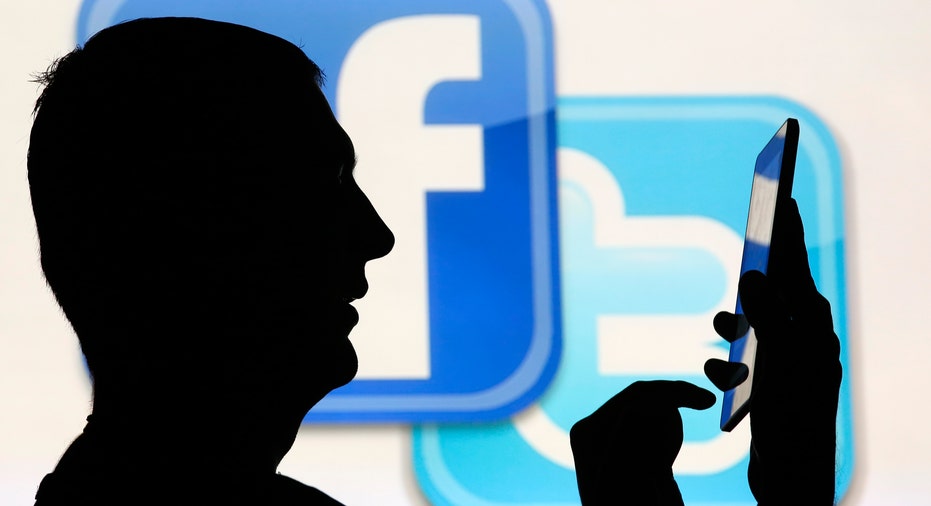How to Use Social Media for Small Business

Do you know how to use social media for your small business? Most small business owners know what a tweet and a like is, but ask them about a hashtag, meme, trending, or geotargeting and chances are they’ll give you a blank stare in response.
Those terms may seem trendy and downright silly, but if you want to grow your small business in this era of mobile and social media you better know what they mean.
“There are some terms that are really import for small business people to know,” says Jay York, a social media strategist at EMSI Public Relations. “Actually making active use of these terms will allow them to increase their business.”
From the basic to the outlandish, here’s a look at five terms social media experts say all small business owners need to know.
How to use social media for business: terms to know
Trending
Top 50 or 100 lists have been around for ages, but in the world of social media what’s popular isn’t that anymore, rather it’s trending. Trending “highlights the frequently buzzed-about items being discussed around the web at any given moment,” says Folke Lemaitre, founder and chief executive of Engagor, a social media management company. So why should small business owners care about what’s trending on Twitter or Youtube? According to Lemaitre, it provides an opporinity for the business owner to take part in the ongoing conversation with people who are already engaged in it.
Hashtag
How do businesses use hashtags on social media? Hashtag is one of those social media terms small business owners are familiar with but have no clue what they are supposed to do with it. Hashtags are used to classify and categorize content on social networks, whether it’s Twitter or Facebook. With a hashtag, users can tag posts, pictures and videos with a hash symbol (#) followed by a word or phrase. This allows the social media site to categorize posts based on like terms, which in turn makes it easier for people to search for similar and related posts. “Small business owners need to understand that each network uses hashtags differently and should be aware of how to properly hashtag,” says Eileen Bernardo, senior social media strategist at Viralheat, the social management platform company. “For example, hashtagging just to hashtag is not efficient - with hashtags, less is more. When used strategically, they can be very powerful on social media.”
Selfie
What else can social media do for your business? Selfies, or photos someone takes of themselves using a mobile device can also help grow the business. “It's not just limited to celebrities, teenagers, and the eternally vain,” says Julie Joyce, owner of Link Fish Media, an Internet link building company. “Even the realty giant Berkshire Hathaway is pushing the selfie on their Facebook page.”
So how can small businesses use selfies to their advantage? According to Joyce it can be a way for companies to show their “real” side and encourage interaction with customers and potential ones. “It's a very modern version of what tons of companies have been doing for years, when they'd have readers submit a photo of themselves reading a certain magazine in exotic locales or wearing a brand's t-shirt all over the world,” she says.
Geotargeting
For small businesses, location is everything. Regardless of the number of storefronts you have, you want to target your advertising and marketing to customers in your area and that’s where geotargeting comes in. “Segmenting your message to reach those close to your storefront means you can customize your message to your target audience,” says Bernardo. “For example, if you are a local business in Central California, you can target your message to reach people within the area and offer a 24 hour coupon or sale for them to come in and redeem.”
Geotargeting may seem complex, but according to York the simple way is to hashtag their neighborhood or city when posting information. “If small businesses want to geo target they can tweet the location they are in making sure to capitalize on anyone searching through hashtag,” he says.
Meme
Meme may sound like a made up word, but it’s actually used to describe something that is “culturally” current or significant that takes on a life of its own and goes viral, says York. A meme could be gesture made by a famous person or a funny video on YouTube that everyone is talking about and/or putting their own spin on. Being on top of memes won’t only make you more interesting, particularly to the younger generations, but it can also afford the business owner the opportunity to get some free exposure. “The point is not to make a sale right then and there, but to be interesting so people want to connect with you and then down the road want to buy product from you,” says York.



















